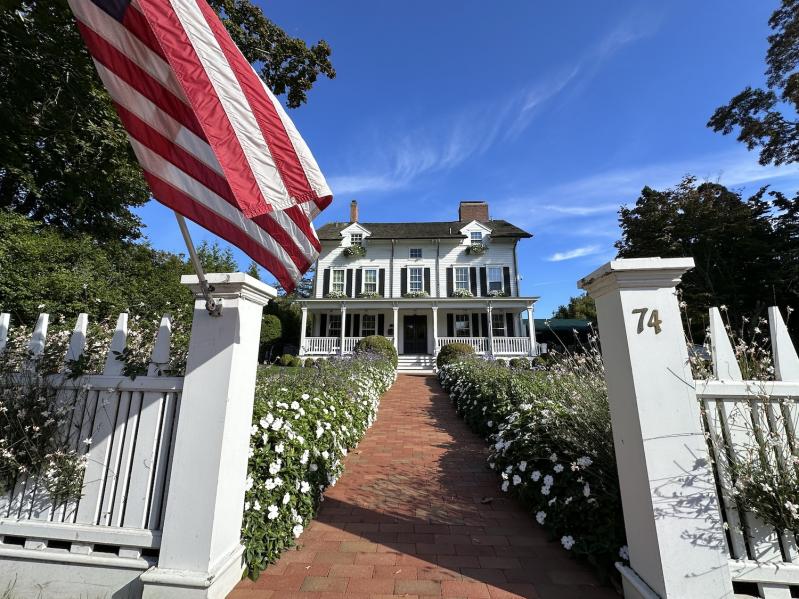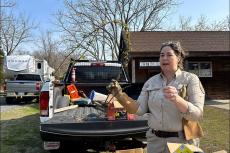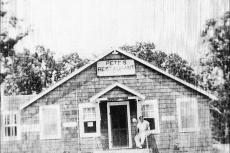After considering East Hampton Village’s request to use $22 million from the town community preservation fund to purchase five historic inns, if or when they become available, East Hampton Town Supervisor Kathee Burke-Gonzalez responded last week with some hesitation and a lot of questions.
“It is not clear to the town council what ‘community character’ benefits would be served by acquisition of full fee title ownership of these properties, over the acquisition of some lesser interest,” she wrote in a letter last week to East Hampton Village Mayor Jerry Larsen. “There is a concern as to whether the prevention of a specific future use would qualify as an appropriate use of C.P.F. funds, especially if the uses of concern do not appear to be consistent with and permitted by the existing Village of East Hampton’s code.”
The town’s community preservation fund receives proceeds from a 2-percent real estate transfer tax that is applied to transactions occurring in the village as well as in the larger Town of East Hampton.
According to Mayor Larsen, transers in the village have accounted for anywhere from 20 percent to 40 percent of the fund’s annual revenue since its inception, and through an agreement with the town, the village is guaranteed 10 percent back for C.P.F. purchases within the village.
With that in mind, the village requested to use its share to begin buying up the inns in its Main Street Historic District, starting, presumably, with the Hedges Inn. The inn and its restaurant proved to be a headache this past summer, as Scott Sartiano, owner of the Manhattan membership club Zero Bond, opened what officials feared would be an outpost of the Manhattan hot spot on James Lane.
Supervisor Burke-Gonzalez wrote that she could relate to the trouble of businesses being shielded by the State Liquor Authority, which sometimes might allow them to operate at hours not in accordance with the local codes. State law trumps local law, in this case, and the S.L.A. has the ultimate say on when a business must close, over and above village ordinances. “However, as difficult as this situation may be at times, preventing such uses does not in and of itself qualify as an appropriate expenditure of C.P.F. funds,” she wrote
“It’s going to take a sit-down with the town supervisor,” said Mayor Larsen when reached by phone this week. “My intent was to let them know what we’re thinking. This may never happen. It’s an uphill battle because the most the C.P.F. can pay is 10 percent over the appraisal value of a property. So, it would take an owner who is motivated to sell their property for the public benefit.” He added that he has had no further discussion with John Cumming, an owner of the Hedges Inn, about purchasing the property since he made his intention clear to the town.
A spokeswoman for Mr. Cumming, Stacey Hutchinson, said he had no comment on the potential sale of the inn.
Nonetheless, Mayor Larsen said he is negotiating with the inn about protecting it and residents from errant cars. In the last few years two cars have collided directly with the inn, luckily causing only minor injuries despite extensive structural damage to the inn. The inn is considering placing bollards to prevent the crashes, but Mayor Larsen thinks they would be lethal. “I would fight bollards as far as I could,” he said. He supports the use of a traffic net, screened from view.
In her letter, Supervisor Burke-Gonzalez recommended perhaps a “hybrid mix of C.P.F. funds, for acquisition of facade easements” and the issuance of bonds, if the village wishes to purchase the buildings outright. “It should be kept in mind that acquisition of fee title ownership of these properties using C.P.F. funds will restrict the use of revenues from these properties, as such revenues would be limited in use to maintaining the C.P.F. property, with any surplus funds being required to be returned to the C.P.F.”
“We’ve discussed a lot of those ideas on the village board,” said the mayor. “The problem is if a business challenges our laws, we may or may not be successful.”
The C.P.F. can be used to preserve community character, but the town supervisor wondered if outright purchase was the best way to achieve that goal. “This is a necessary analysis under the regulations for the use of C.P.F. funds,” she explained.
“Other than full ownership, I wouldn’t know how to do it,” said Mayor Larsen. “I’m not sure you can mandate a historic use. What if someone purchased an inn and wanted it to be their personal residence. They couldn’t be forced to run a restaurant. We know we can protect the facade with an easement. I’m trying to keep them open to the public forever so that people can enjoy the history of East Hampton. These inns were here way before zoning. To lose the ability for the public to get into them would be terrible.”
So, what if the C.P.F. and the village never came to an agreement on purchasing the inns? Are there any other areas where the village could use the money? “For us water quality is more important because we don’t have a lot of open space to purchase. I could use every penny of our C.P.F. funds on water quality,” the mayor said. “We’re allowed to use 20 percent of our allotment there. A new sewer system could end up costing us between $40 million and $50 million. If we bonded that amount, I could use the C.P.F. to repay the bond so we wouldn’t have to raise taxes.”




